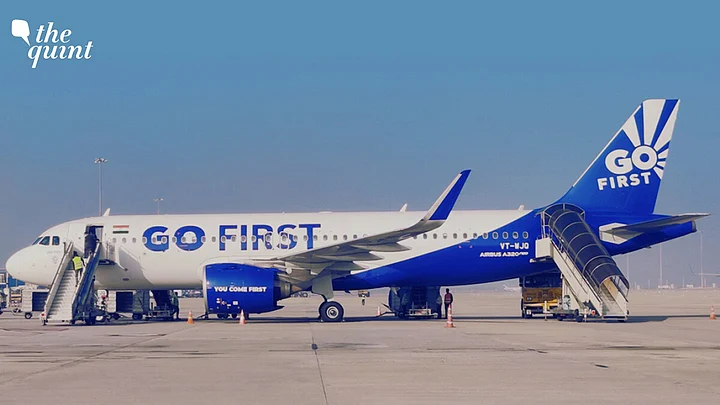The Indian aviation sector has always been a challenging industry to crack into. Companies in this sector have struggled to break even, and only one airline, IndiGo, has managed to achieve some level of stability and profitability. Meanwhile, other players have been suffering, and the industry has been struggling to attract investment.
Recently, there was a glimmer of hope when Tata-owned Air India ordered a massive number of 470 aircraft from Airbus and Boeing. This move was followed by IndiGo's order for around 500 planes, and the market became optimistic about the future of the industry. However, the hype was short-lived when a low-cost carrier, Go First, owned by the Wadia family, announced that the company would be filing for bankruptcy. The CEO stated that the airline had been losing 200 crore every month.
The aviation industry has also been hit hard by the COVID-19 pandemic. The economic effects of the pandemic have been felt around the world, and the Indian aviation industry has been no exception. Airlines have been forced to ground themselves, and the resulting loss of revenue has led to an increase in debt levels. The industry is now struggling to stay afloat, with many airlines facing bankruptcy or closure.
Issues With the Aviation Industry
So, what went wrong with the Indian aviation industry? One issue is that the industry has been trying to replicate the US airline industry's model, but this is not always feasible in every country. In India, people are better off using public transport, such as trains and buses, to travel between neighboring states. The country's relatively small size means that air travel does not offer the same level of convenience as it does in the US.
For example, a few years ago, Air India started servicing a route from Bathinda, Punjab (BUP) to Delhi (DEL). The travel fare ranged around 2500 per person, and the service was thoughtful, considering the massive demand for travel on that route. However, Air India had to stop the service after a few years as it became unviable.
The main issue was that the airline took more time to reach Delhi than it took for a passenger to travel by train. When a passenger boards a train, they arrive at the station 15 minutes early and reach Delhi in five hours.
However, for air travel, passengers have to reach the airport (which was far from the city) 1-2 hours before the flight, and then it takes 25 minutes to reach the airport. After that, it can take another 1-2 hours to collect baggage and reach the actual destination from the airport, which makes air travel rather inconvenient for passengers.
Grounds for Optimism?
Another issue with the industry is efficiency. IndiGo is the only airline in India that uses its planes six times a day on average, while other airlines do not come close to this level of efficiency. SpiceJet is known for its frequent delays, which leads to inconvenience and dissatisfaction among passengers.
Despite the challenges faced by the Indian aviation industry, there are reasons for optimism. As India's middle class continues to grow and the country's economy expands, there is likely to be an increasing demand for air travel. By addressing the structural issues that have held the industry back and adapting to changing market conditions, Indian airlines have the potential to achieve sustainable growth and profitability in the years to come.
(Ujvin Nevatia [Proprietor: NEVAT INVESTMENTS] is a SEBI-registered Research Analyst. He tweets @UjvinNevatia. This is an opinion article and the views expressed are the author’s own. The Quint neither endorses nor is responsible for them.)
